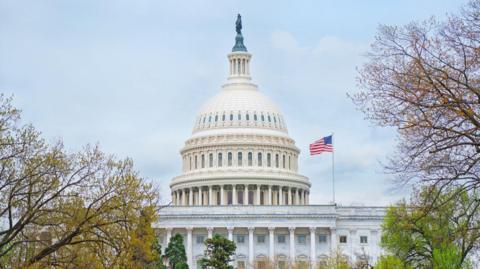Even with a healthy majority in the Senate this time around, Trump will not have the magic 60 seats that would allow him to overcome opposition attempts to delay legislation.
And on Wednesday, Republicans in the Senate selected John Thune as their majority leader over Florida's Rick Scott, the clear favourite in the Trump camp, in a sign some lawmakers may be reasserting their independence (Trump did not officially endorse Scott).
That said, a trifecta, if astutely managed, does open the way for the possibility of major legislative initiatives.
Trump's power advantage could be key in pushing through his big promises such as the largest deportation of migrants in history, sweeping tariffs on foreign imports, and the rolling back of environmental protections.
Using legislation to achieve these ends will make such plans much harder to overturn in the courts - something Donald Trump was plagued by in his first term when he extensively used executive orders that were regularly and often successfully challenged.
The judicial landscape also has changed in Trump's favour.
The signature achievement of his first term was putting three conservatives on the Supreme Court - cementing a two-thirds majority for possibly decades to come.
He also named more than four dozen judges to the federal appeals courts, flipping several circuits to a more conservative bent.
The majority Republicans have in the Senate also provides a key advantage.
Trump will be able to get his nominees for administration posts approved more easily, something he struggled with back in 2017 when internal resistance to him in the Republican Party was still significant.
All this bodes for a busy and possibly turbulent next two years. But, as recent history indicates, these trifectas don't last all that long. The incoming administration will want to get a move on.
